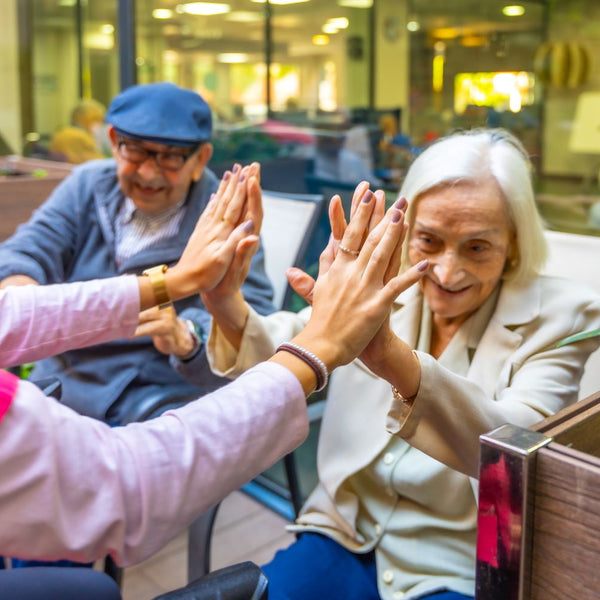Estimated reading time: 3 minutes
Every minute counts when it comes to staying active and moving around. Read our expert physiotherapist advice to help people stay active as they age.
Staying active as we age has never been more important. But it’s not always easy to shrug off sedentary behaviour and encourage more movement.
However, there is a link between ageing and an increased risk of falling. Falls are associated with a greater risk of fractures and hospitalisation. Staying active and mobile can really help reduce the risk of falling, as well as improving overall health.
When it comes to matters relating to health and accidents, prevention is always better than cure. Solutions that proactively encourage improvement in strength and balance will help us to remain independent for longer and avoid complications later down the road.
Nancy Farmer, an experienced physiotherapist specialising in elderly rehabilitation, is passionate about helping older people improve their strength and stamina.
Here are Nancy's 4 top tips to help people feel the benefit of exercise as they age.

1. Activity vs exercise
Just the word ‘exercise’ can put people off. But movement doesn’t have to mean an aqua aerobics class or a long walk if you don’t feel up to it.
Cooking for example is a great physical activity. Standing at the hob can build up muscle tolerance and you can improve balance as you reach for items around the kitchen. But don’t overstretch yourself. There are some fantastic daily living aids such as kitchen perching stools available that can make daily activities easier, safer and more accessible.
Are there any activities that you like doing around the home, but maybe haven’t done as much recently? Think of these as opportunities and work out how could you safely include them back into your routine. Gardening is a good physical activity and there are useful gardening tools for the elderly that can help.
2. Something is better than nothing
Yes, the guidelines state that people should do 150 minutes of moderate exercise a week but in light of the rise of sedentary behaviour, anything is better than nothing.
Every minute of movement is better than not doing it. That could be walking round the block, using light weights to work on the upper body when sat down, or even using the bottom step as a step up (holding onto the bannister if you need it).
By improving strength and balance, you can reduce the risk of falling before an accident occurs, helping you or your loved ones remain safe and independent for longer.
3. Set realistic goals
If you’re thinking “this is all very well, but how do I push myself?” then realistic goals are the answer.
Work out what you want to achieve (such as walking round the park twice) and then set out a plan for how you can make this happen. For instance, using a walking stick or walker could give you extra support, or taking breaks every five minutes to build your energy back up.
Every goal should have a time frame for when you want to achieve it by, so that you can really focus, and breaking it down into smaller, weekly goals makes it much more manageable.
Tell a family member or friend – they can act as your cheerleader, willing you on – and also give you someone to update on progress. Or find a friend to walk with and add a social element to the activity.
Reducing the risk of falls around the home
Falls are also caused by environmental issues such as poor lighting and slippery floors. Some simple checks and modifications could help fall-proof the home and make it a safer environment.
The Taking Care Falls Prevention Guide recommends 5 key things you can do to reduce the risk of falls in the home.

Complete our 2 minute online assessment to find out you or your loved one's falls risk score and ways to remain safe and independent with our Falls Prevention Guide.
4. Tailor exercises to you
Everybody can exercise, regardless of age and ability. It’s just a case of finding what works for you. For example, if you find it hard to get on and off the floor for yoga, try some exercises on the bed so you can easily get up afterwards (a physiotherapist will be able to set some for you). Or look for equipment which could make exercising more comfortable such as a cushioned yoga mat.
When it comes to our body, it really is use it or lose it. A little movement every day can make all the difference. You can do it!
About the author

Nancy Farmer is a physiotherapist specialising in elderly rehabilitation and runs ElWell, helping people look after their parents as they get older.



